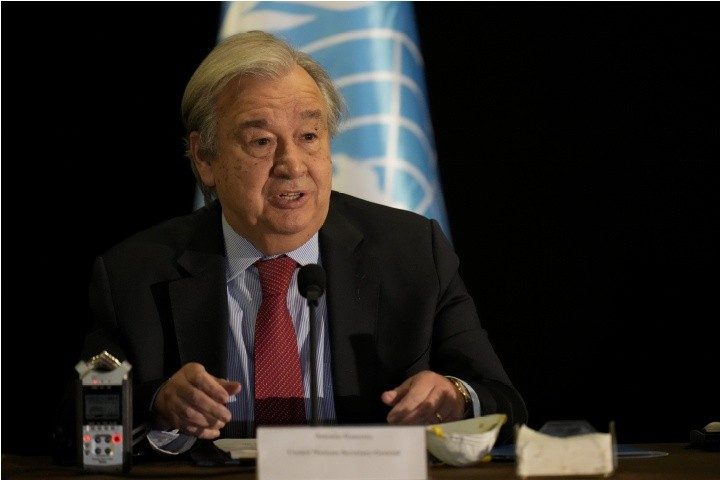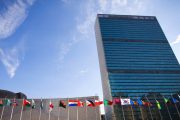
At the beginning of the Economist’s Seventh Annual Sustainability Week on Monday, UN Secretary-General António Guterres once again pushed the climate-change panic button. The fearmongering speech included the UN chief claiming that the goal of keeping the planet’s temperature rise under 1.5° Celsius was “on life support” and was “in intensive care” owing to a variety of issues including COVID-19 and the war in Ukraine.
Guterres warned that the “all-of-the-above” strategy that many economies are currently employing to replace Russian oil in protest to its war with Ukraine is having deleterious effects on the fragile goals of COP26 and that the efforts of nations to keep a steady energy supply risks exploding so-called global warming beyond society’s ability to manage.
“Countries could become so consumed by the immediate fossil fuel supply gap that they neglect or knee-cap policies to cut fossil fuel use,” Guterres told the summit.
The secretary-general also compared the specter of climate change to nuclear annihilation, saying, “This is madness. Addiction to fossil fuels is mutually assured destruction.”
“We must tell it like it is. The world emerged from Glasgow [COP26] with a certain naive optimism” about achieving its goals, Guterres told a virtual gathering. “Keeping 1.5 alive requires a 45 percent reduction in global emissions by 2030 and carbon neutrality by mid-century. That problem was not solved in Glasgow.”
“According to present national commitments, global emissions are set to increase by almost 14 percent in the 2020s,” Guterres said. “Last year alone, global energy-related CO2 emissions grew by 6 percent to their highest levels in history. Coal emissions have surged to record highs. We are sleepwalking to climate catastrophe.”
This newest dire prognostication by Guterres comes only three weeks after the secretary-general called the latest report from the Intergovernmental Panel on Climate Change (IPCC) “an atlas of human suffering and a damning indictment of failed climate leadership.” In that speech, the secretary-general concluded that “delay means death.”
Guterres doubled down on his grim rhetoric Monday.
“In 2020, climate disasters forced thirty million to flee their homes, three times more than those displaced by war and violence,” Gutteres claimed. “Just two weeks ago, the IPCC confirmed that half of humanity is already living in the danger zone. Small island nations, less developed countries and poor and vulnerable people everywhere are one climate shock away from doomsday.”
Guterres’ claim of 30 million “fleeing their homes” in 2020 because of “climate disasters” is specious at best. The number includes people temporarily displaced by wildfires, which many believe are due more to forest mismanagement than climate change. It also includes people internally displaced within their own nations, due largely to flooding during monsoon seasons, a normal weather event, in places such as Bangladesh and India. Millions are displaced temporarily only to return to their homes. Guterres speaks as though there were 30 million people fleeing to safer countries because of weather conditions that have occurred for millennia, which is simply not true.
While countries are seeking alternative sources of energy such as Persian Gulf oil as a way of keeping up with their need for energy, Guterres laments that the new supply shortage isn’t resulting in countries simply switching to other technologies and using this opportunity to get off of the fossil fuels that efficiently heat our homes and fuel our automobiles.
“Instead of hitting the brakes on the decarbonization of the global economy, now is the time to put the pedal to the metal towards a renewable energy future,” Guterres said.
Unfortunately, as Guterres should be well aware, current renewable energy sources — wind turbines and solar panels — are simply not anywhere near capable of powering the world as we know it. Pretending that renewables are the answer is simply a fanciful dream.
Guterres and the IPCC are the embodiment of Chicken Little screaming that the sky is falling. They make a lot of noise but present very little real evidence that their fears are real. They seem to believe that making their predictions even more dire will spur the governments of the world into draconian action. Guterres and his minions sell fear, this time even comparing climate change to nuclear annihilation. In the long term, fear is never a good investment.




